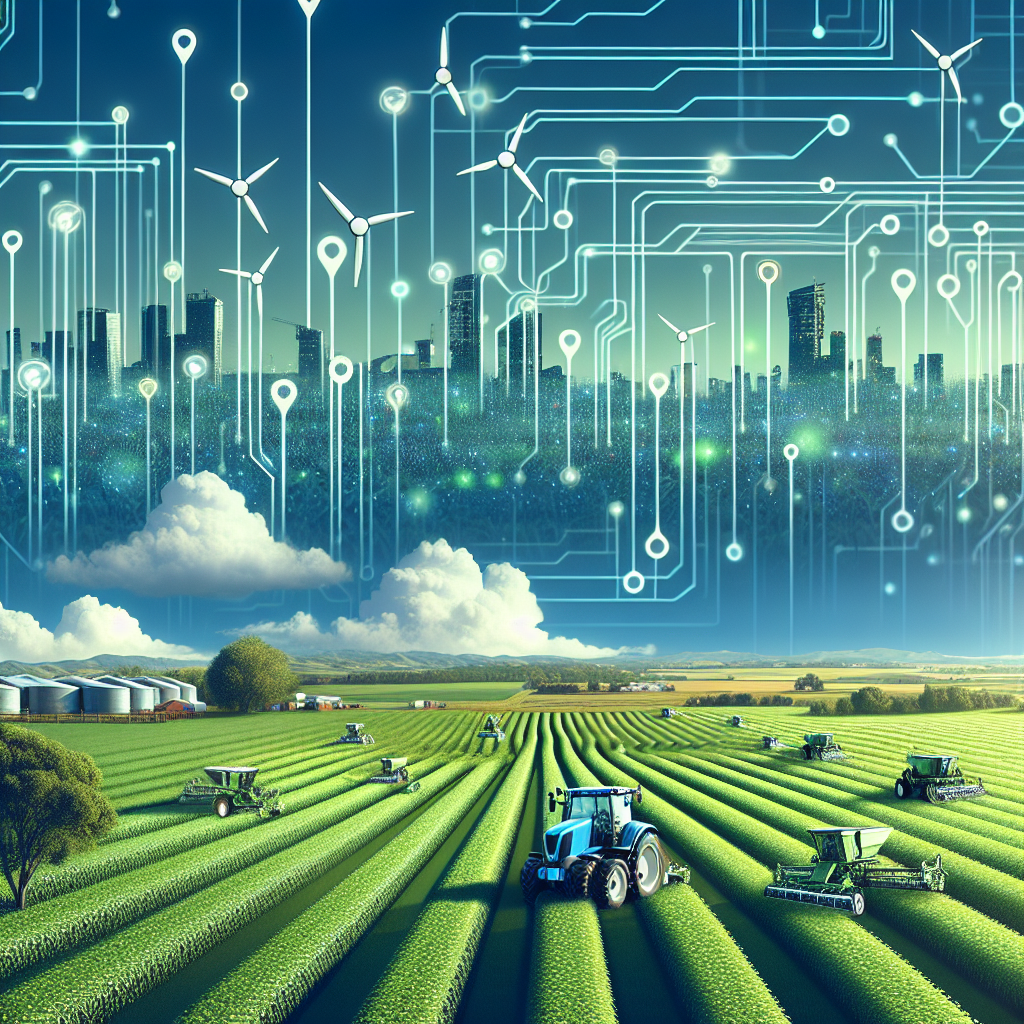AI Consulting: Improving Agricultural Practices
In recent years, the agricultural industry has seen a significant shift towards adopting innovative technologies to improve efficiency, increase productivity, and reduce costs. One such technology that has gained traction in the agricultural sector is artificial intelligence (AI). AI consulting services are now being utilized by farmers and agricultural companies to make informed decisions, optimize operations, and ultimately improve agricultural practices.
AI consulting in agriculture involves the use of AI algorithms and machine learning models to analyze large amounts of data collected from various sources such as sensors, drones, satellites, and other IoT devices. These AI models can provide valuable insights and recommendations to farmers on crop management, soil health, pest control, and irrigation scheduling, among other things.
One of the key benefits of AI consulting in agriculture is the ability to make data-driven decisions. By analyzing historical data on weather patterns, soil conditions, crop yields, and other factors, AI models can predict future outcomes and help farmers make informed decisions on when to plant, harvest, irrigate, or apply fertilizers and pesticides. This can lead to increased productivity, reduced waste, and improved profitability for farmers.
AI consulting services can also help farmers optimize their resources and reduce costs. By using AI algorithms to analyze data on crop health, soil moisture levels, and weather forecasts, farmers can determine the optimal amount and timing of inputs such as water, fertilizers, and pesticides. This can help reduce overuse of inputs, minimize waste, and lower production costs.
Another advantage of AI consulting in agriculture is the ability to monitor and manage crops in real-time. AI models can analyze data from sensors and drones to detect early signs of crop diseases, pests, or nutrient deficiencies. By alerting farmers to potential problems early on, AI consulting services can help prevent crop losses and improve overall crop health.
AI consulting services can also help farmers with precision agriculture practices. By using AI models to analyze data on soil variability, crop growth patterns, and topography, farmers can create precise maps of their fields and apply inputs such as water, fertilizers, and pesticides in a targeted manner. This can help optimize crop yields, minimize environmental impact, and improve sustainability.
In addition to improving agricultural practices, AI consulting services can also help farmers comply with regulations and certifications related to food safety, environmental protection, and sustainable farming practices. By using AI models to track and trace inputs, monitor field activities, and analyze data on crop production, farmers can ensure compliance with various standards and certifications.
Overall, AI consulting in agriculture has the potential to revolutionize the way farmers manage their operations and improve agricultural practices. By leveraging AI algorithms and machine learning models, farmers can make data-driven decisions, optimize resources, monitor crops in real-time, and comply with regulations. This can lead to increased productivity, reduced costs, and improved sustainability for the agricultural industry.
FAQs:
1. What is AI consulting in agriculture?
AI consulting in agriculture involves the use of AI algorithms and machine learning models to analyze data collected from various sources such as sensors, drones, satellites, and other IoT devices. These AI models can provide insights and recommendations to farmers on crop management, soil health, pest control, and irrigation scheduling, among other things.
2. How can AI consulting help improve agricultural practices?
AI consulting can help farmers make data-driven decisions, optimize resources, reduce costs, monitor crops in real-time, and comply with regulations. By using AI algorithms to analyze data on weather patterns, soil conditions, crop yields, and other factors, farmers can improve productivity, reduce waste, and increase profitability.
3. What are the benefits of AI consulting in agriculture?
Some of the benefits of AI consulting in agriculture include increased productivity, reduced costs, improved sustainability, and compliance with regulations. By leveraging AI algorithms and machine learning models, farmers can optimize their operations, make informed decisions, and monitor crops in real-time.
4. How can farmers access AI consulting services?
Farmers can access AI consulting services through specialized consulting firms, agricultural technology companies, and research institutions that offer AI solutions for agriculture. These services can be tailored to the specific needs and requirements of individual farmers and agricultural companies.
5. What are the challenges of implementing AI consulting in agriculture?
Some of the challenges of implementing AI consulting in agriculture include data privacy concerns, limited access to high-quality data, and the need for technical expertise. Farmers may also face challenges in integrating AI solutions into their existing operations and workflows.
In conclusion, AI consulting in agriculture has the potential to transform the way farmers manage their operations and improve agricultural practices. By leveraging AI algorithms and machine learning models, farmers can make data-driven decisions, optimize resources, monitor crops in real-time, and comply with regulations. This can lead to increased productivity, reduced costs, and improved sustainability for the agricultural industry.

